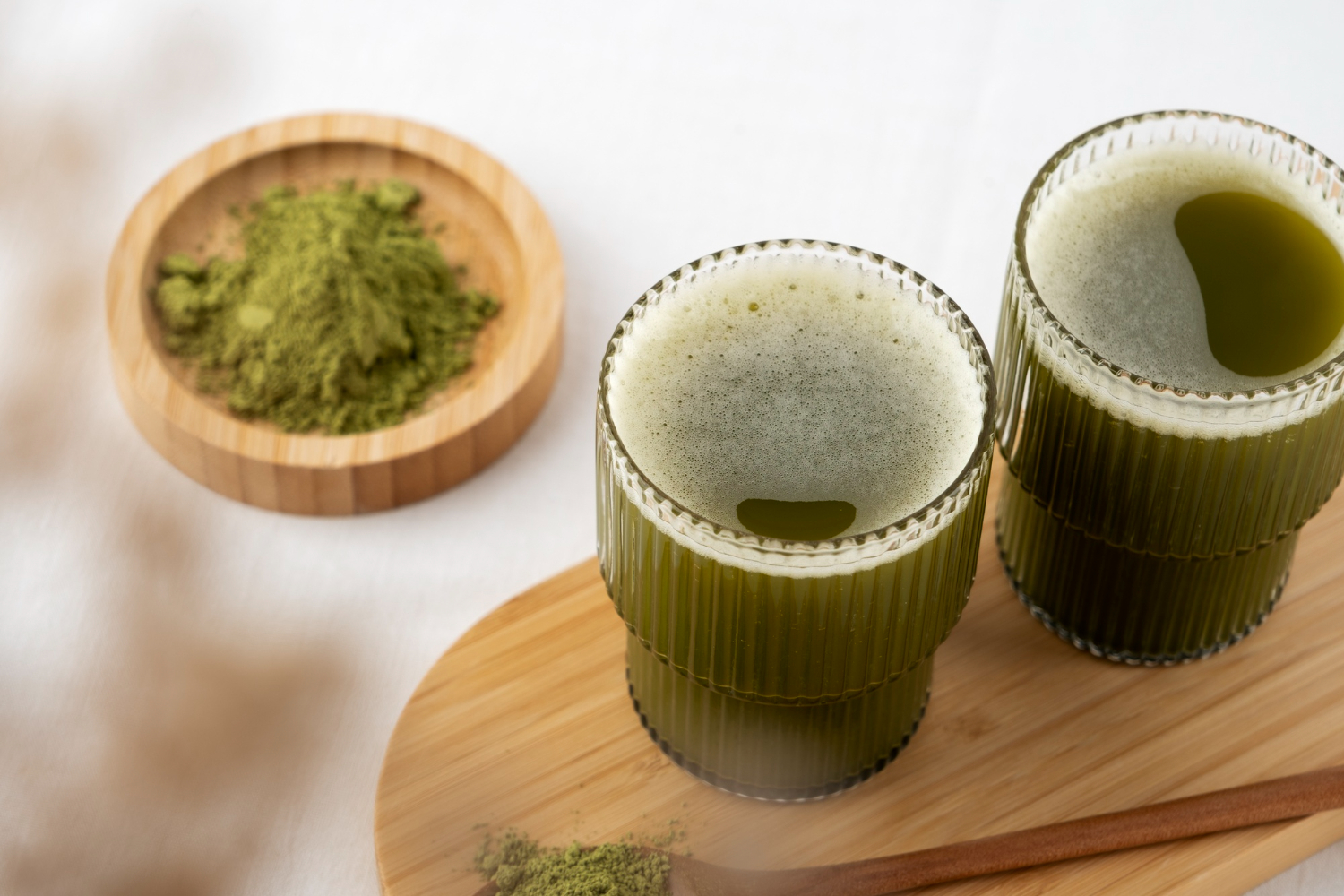Drink that regulates blood sugar and slows aging
 Matcha’s health benefits (photo: Freepik)
Matcha’s health benefits (photo: Freepik)
Matcha has become popular not only as a beverage but also as a superfood due to its health benefits. It turns out that this Japanese tea can regulate blood sugar levels and even slow down the aging process.
RBC-Ukraine reports on how matcha affects the body and what contraindications exist.
What is matcha tea?
Matcha is a type of green tea made from the ground leaves of the Camellia sinensis plant. This so-called matcha tea was initially served at tea ceremonies in Japan, but it is now widely available and used in the food industry and cooking.
Although matcha is produced from the same plant as green tea, it is grown differently to ensure that the tea leaves contain a high concentration of certain phytochemicals.
Despite being cultivated from the same plant as green tea, matcha is grown in a unique manner, resulting in a distinctive nutrient profile. During most of the growing season, the plants are covered with bamboo mats, which increases the chlorophyll content in the leaves and gives them their characteristic bright green color.
Benefits of matcha
Sometimes, matcha can cause discomfort in the stomach or even nausea.
According to nutritionist Anastasia Holoborodko, high-quality matcha effectively regulates blood sugar levels, making it beneficial after a hearty lunch or dinner.
Research has shown that green tea contains a family of polyphenols known as catechins, which have remarkable abilities to quench free radicals.
Oxidative stress arises from dietary mistakes, household chemicals, environmental factors, and internal stress states.
"High-tech methods to slow down the aging process have emerged. Quality green tea (not just any on the shelf) is one of them. Ordinary cheap teas are loaded with fluorides. Tea bags, instant cold tea mixes, and decaf options often contain too much fluoride," noted the expert.
One specific component of high-quality green tea (preferably non-fermented and particularly in matcha) is catechin (epigallocatechin-3-gallate), which actively protects cells from damage.

Matcha (photo: Freepik)
Antioxidants found in matcha can improve skin health and reduce the appearance of fine lines and wrinkles. These antioxidants may also help protect the skin from UV radiation and pollutants that can accelerate aging.
Regularly treating yourself to a cup of matcha can help you look younger by promoting cell renewal and collagen production while protecting the skin from UV rays, pollutants, inflammation, and oxidative stress.
Can everyone drink matcha?
This beverage is considered safe for most people. However, if you are sensitive to caffeine, it is advisable to limit your overall caffeine intake, including matcha.
If you have been diagnosed with iron-deficiency anemia, it's important to know that, like other teas, matcha contains tannins. These natural compounds hinder iron absorption, so it is advisable to avoid consuming tea during meals — instead, wait at least one hour before drinking tea.
Sources: Instagram page of nutritionist Anastasia Holoborodko and the Good Food website.
This material is for informational purposes only and should not be used for medical diagnosis or self-treatment. Our goal is to provide readers with accurate information about symptoms, causes, and methods of detecting diseases. RBС-Ukraine is not responsible for any diagnoses that readers may make based on materials from the resource. We do not recommend self-treatment and advise consulting a doctor in case of any health concerns.

